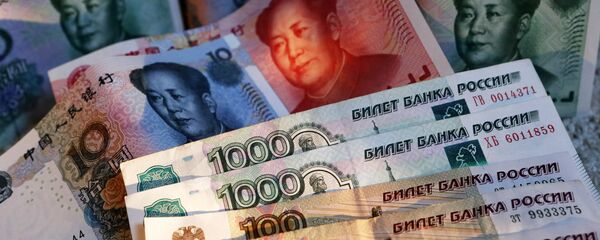Higher Interest Rate
News of the gas pipeline project seeking financial support from Chinese banks came after the US Senate in mid-June voted in favor of new anti-Russia sanctions, targeting the funding of Russian oil and gas companies, as well as the people and entities investing in the construction of Russian export pipelines.
Analysts, however, suggested that financing from Chinese banks could be more expensive for the Nord Stream 2 project, compared to investment from European partners.
"Interest rates offered by Chinese banks are higher compared to offers from other investment banks in Europe," Alexei Grivach, the deputy director for Gas Projects at Russia's National Energy Security Fund, told Sputnik.
The project’s operator, owned by Gazprom, signed an agreement with five European partners, including Engie, OMV, Royal Dutch Shell, Uniper, and Wintershall, to provide 50 percent of long term financing, estimated at 9.5 billion euros ($10.3 billion), for the implementation of the Nord Stream 2 gas pipeline construction project, the Russian energy giant said in April.
According to Grivach, although this was not the first time Gazprom tried to obtain loans from Chinese banks, it will take some time before both sides understand how to form a long-lasting partnership.
Gazprom reached an agreement with Bank of China on a five-year loan of 2 billion euros ($2.2 billion) in March 2016.
"This [the loan from Chinese bank to Gazprom] was the first time Gazprom takes a loan from Chinese banks. It was more like a first time experience. Developing a partnership needs time," he said.
Grivach believes that the loan from Bank of China may not have been used for the construction of another signature gas pipeline project, the Power of Siberia, which is expected to deliver 38 billion cubic meters of Russian gas annually to China.
The energy expert suggested that sanctions from the United States and European Union might have played into the hands of Chinese banks, because it allows them to ask for higher rates without offering any discount to Russian companies.
"Without sanctions from the US and the EU, Chinese banks will need to lower their offerings to compete with offers from western banks. In this way, they [Chinese banks] are happy with the sanctions," Grivach said.
Policy Support
The fact that credits from Chinese banks come at higher interest rates is decided by conditions in the capital market in China, analysts suggested.
"The benchmark interest rate in China is much higher than that in Europe and the United States. It’s difficult for Chinese banks to offer lower interest rates, because the cost of their capital is also higher," Wilson Li, a Shenzhen-based banking analyst at Guotai Junan Securities, a company engaged in securities research and investment banking, said.
The benchmark interest rate set by the People’s Bank of China, the Chinese central bank, stands at 4.35 percent, while the benchmark interest rate set by the European Central Bank has stayed at zero since March 2016.
Li noted that it was possible for Chinese banks to offer lower interest rates through its overseas branches based on local market conditions.
"If the loan is issued by an overseas branch of a Chinese bank, the interest rates could be comparable to offers from other banks in the region, because of competition in the local market," Li said.
The loan from Bank of China to Gazprom was issued by the Chinese bank’s overseas branch in London.
However, Li pointed out that, due to strict control on the financial market from Chinese authorities, it was unlikely for Chinese commercial banks to actively compete in the lending markets overseas.
"Before loans are issued in China, each transaction has to be approved by Chinese authorities," Li said.
As most Chinese banks do not have large retail operations overseas, loans issued by Chinese banks in overseas markets mostly came from policy banks such as a number of development banks, the banking expert revealed.
Li added that it was possible for Chinese banks to offer favorable interest rates to overseas projects endorsed by Chinese authorities, such as infrastructure projects under the One Belt One Road Initiative.
Chinese President Xi Jinping is expected to pay an official visit to Russia on July 3-4. Agreements on a number of cooperation projects between Russia and China, including the Power of Siberia, usually came after meetings between leaders of the two nations.





